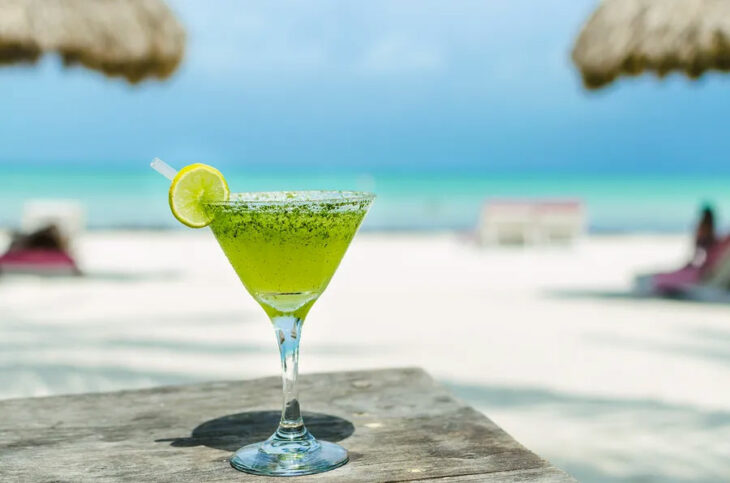By Myrna Beth Haskell//
A few years ago, my sister and I were sipping margaritas while we lounged by her pool. The weather was gorgeous, so we were soaking in some rays as well. Typically, one or two margaritas over the course of an afternoon wouldn’t send me into Neverland. However, this time was different. As I started to rise from the lounge chair, the deck seemed to sink below me. Holy cow! Was I slurring my words?
I used to have a “hollow leg.” At least that’s what my friends used to tell me. Okay, that was back in college, but you get the picture. So, was it the sun that caused me to be a bit loopy?
As time passed, I had to admit my relationship with alcohol had changed. If I was going to consume any kind of alcoholic beverage, I needed to eat plenty of food and stay out of the sun because sun exposure definitely aggravated the buzz.
After talking with several friends, all of whom were in their 40s, I realized I wasn’t the only one who had suddenly become a lightweight.
What’s a girl to do?
Why is it that middle-aged women become much more sensitive to the effects of alcohol?
Harold C. Urschel III, MD, chief medical strategist and author of “Healing the Addicted Brain: The Revolutionary, Science-Based Alcoholism and Addiction Recovery Program,” explains that as we age, the effects of alcohol are more intense and makes it more difficult to bounce back.
“As we get older, it is harder for us to process alcohol in our bodies,” Urschel says. “We are more susceptible to its damaging effects. Over time, the use of alcohol damages the liver and limits its ability to effectively eliminate toxins, which then causes greater damage to our bodies.”
Urschel warns that women absorb 50 percent more alcohol through their stomachs than men do, resulting in higher blood alcohol levels. In addition, hormonal changes during menopause can further increase the absorption rate making the effects of alcohol even greater.
How does one ease the effects of alcohol?
Urschel suggests the following tips:
- Eat food and drink water while consuming alcohol: “Our liver metabolizes alcohol at a rate of about one drink per hour, so drinking a large glass of water or other non-alcoholic beverage between alcoholic drinks will limit the total about of alcohol in your system.”
- Know your limits. One drink means five ounces of table wine: “Many people will fill up their wine glass thinking that it is only one drink when it is actually two (8 to 10 oz.).”
- Stay out of the sun: “Alcohol dehydrates the body, and when you further dehydrate yourself by sitting in intense sun, you create a compounding effect. Drinking more alcohol to quench our thirst or cool off only exacerbates the problem and makes us more susceptible to heat exhaustion and heat stroke.”
- In addition, alcohol also affects sleep cycles. Menopausal women should keep this in mind if they have trouble sleeping through the night.
Of course, this is not to say that having a glass of champagne at a wedding or an occasional glass of wine with dinner is off-limits. It’s just that middle-aged women have to be acutely aware of how alcohol affects them and knowledgeable about ways to drink responsibly.
Reach Myrna Beth Haskell at myrnahaskell@hvc.rr.com.


